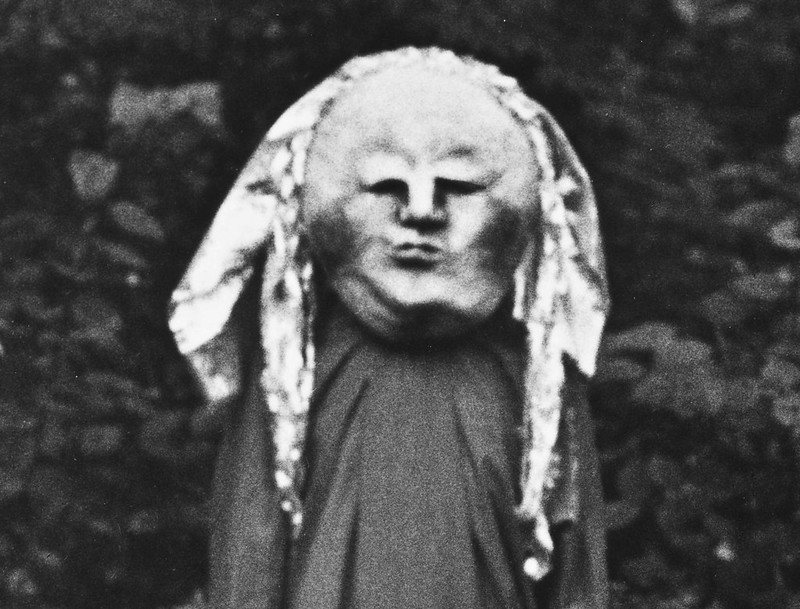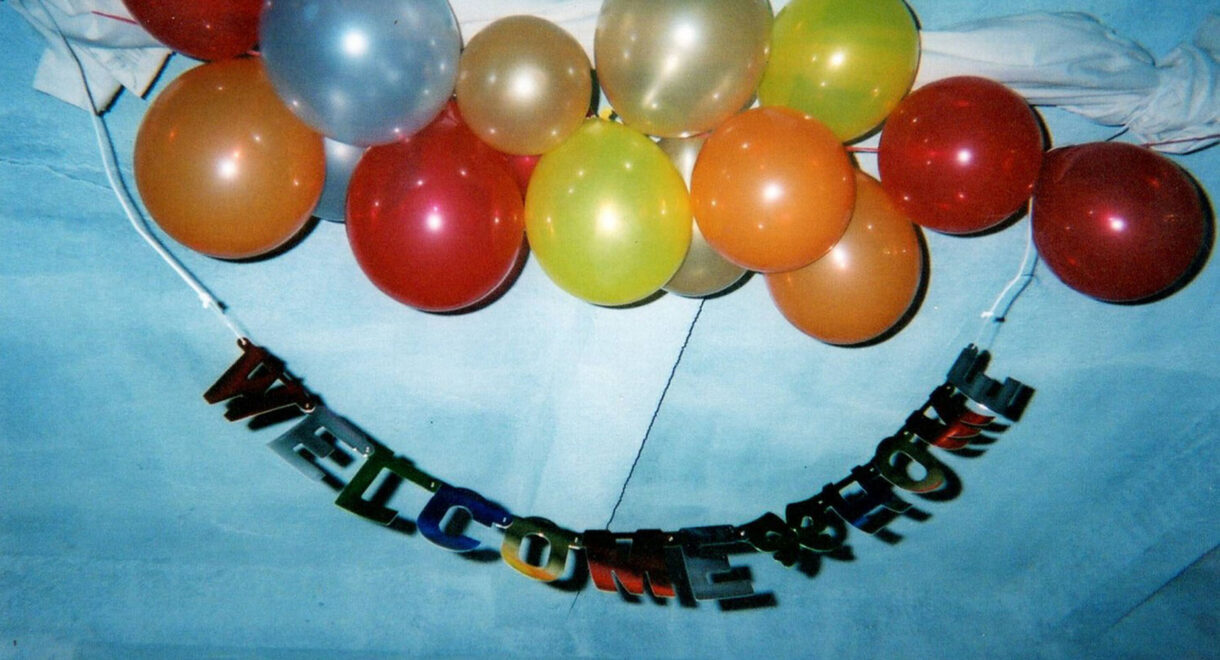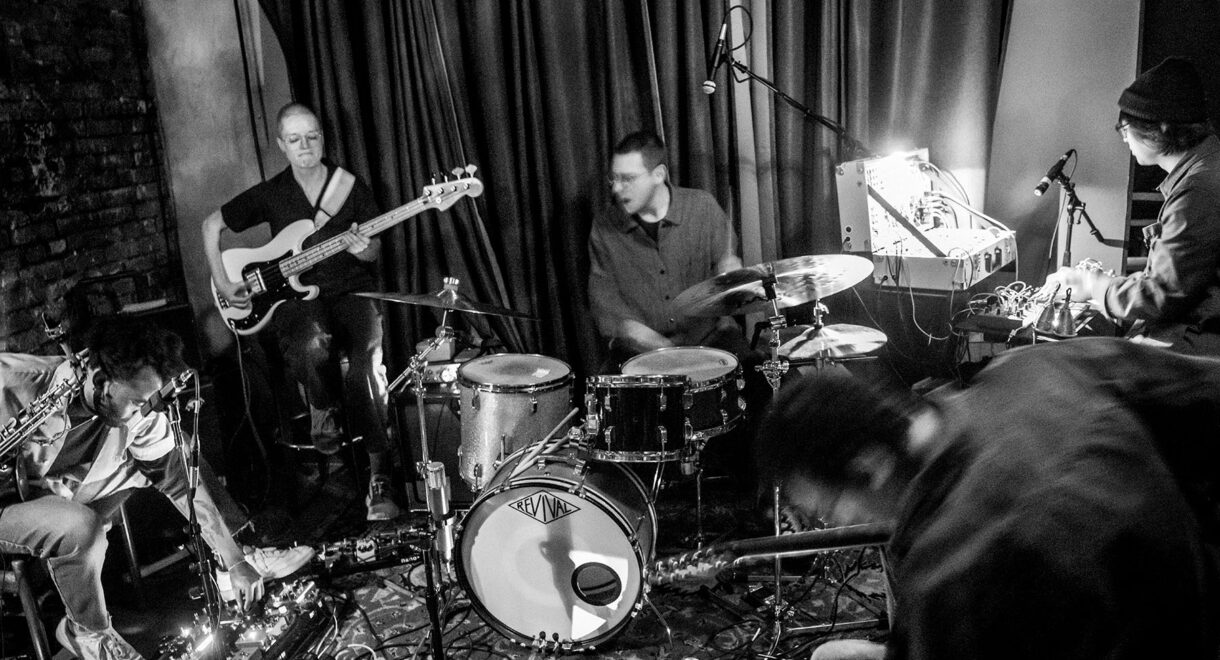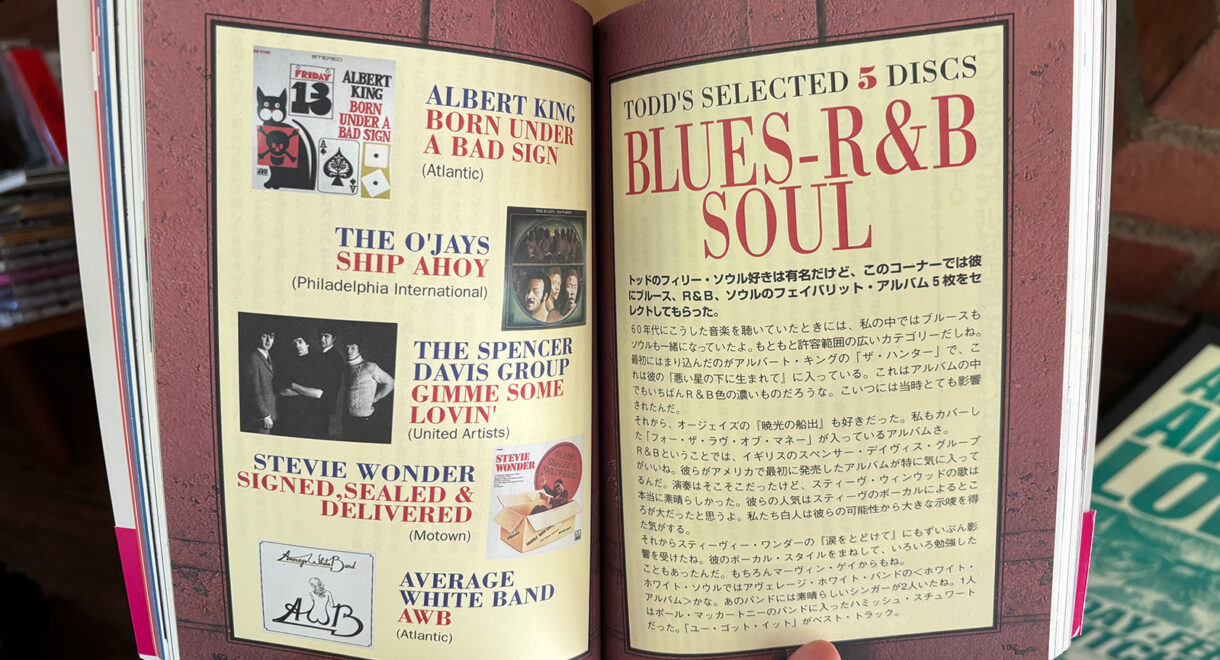Gelareh Khoie shares the story of thirtyninehotel, a legendary nightclub, art gallery, and performance space powered by Klipschorns from David Mancuso’s Prince Street loft parties. Love (Art & […]
Exploring the lesser-known work of jazz minimalists the Entourage Music and Theater Ensemble

The Mermaid’s Purse captures a brilliant group of uncategorizable musical explorers. Core member Wall Matthews recalls their work.
To best introduce the work of the Entourage Music and Theater Ensemble, a group of Millbrook, New York-based artists that existed in one form or another for much of the 1970s, it makes sense to go to the source: multi-instrumentalist Wall Matthews, the sole remaining member of the ensemble.
Folkways Records, which originally released their recordings, has recently embarked on a transcendent reissue campaign, and a few months ago released The Neptune Collection, a pristine set of live recording from 1974 that illuminates the lesser-known experimental group’s creative energy.
Founded by saxophonist-keyboardist-percussionist Joe Clark, it was born as a trio with guitarist-violist Rusty Clark (no relation) and drummer Michael Smith.
As Matthews writes on his Entourage website, of its philosophy:
The group’s creative foundation was built upon Joe Clark’s strong belief in “Collective Composition.” It was his concept that contributions made by participating members in the creation of a musical piece, whether in reaction to a “theme” written by one of the composers, or, through the process of the group’s improvisations resulting in an original composition, were all part of the resulting compositions. Hence the crediting of compositions as “Collectively Composed” by the group, or “Collectively Composed, theme by_____”, became the standard crediting notation. This applied to the choreographic work of the dancers as well.
As each member was establishing his credentials, they aligned with Folkways, the epic label founded by Moses Asch that has amplified and served as guardians of essential work by Leadbelly, Harry Smith, and hundreds of other albums of field recordings, experimental electronic music and crucial sounds from around the world.
The result was Entourage’s self-titled first album, released in 1973. Matthews joined just before it came out. A Baltimore-based guitarist, keyboardist, and percussionist who had earlier collaborated with the group, he had traveled to Millbrook with some of his own pieces in tow – and ended up joining the trio to make Entourage a quartet.
The second album, The Neptune Collection, was released in the summer of 1975 in the whaling town of New London, Connecticut.
Folkways has just released The Mermaid’s Purse: Live at Chatham College, 1976, a previously unavailable concert. Featuring what release notes describe as “elements of modernist classical music, folk traditions from around the world, drone, jazz,” the result is a singular approach. Notes penned by Matthews recount that “the group ate scrambled egg sandwiches, played poker, drank at a dive bar called The Dolphin, and wrote music, rehearsing and improvising together in member Joe Clark’s apartment. As they played, the music began to weave itself into being.”
“Something larger was molded. Something very earthy and very spiritual at the same time.”
wall matthews
Matthews, whose solo work has been the subject of reissues by the great San Francisco label Tompkins Square, joined In Sheep’s Clothing for a fascinating conversation about Entourage and The Mermaid’s Purse. Below are highlights from that conversation, which have been edited for length and clarity.
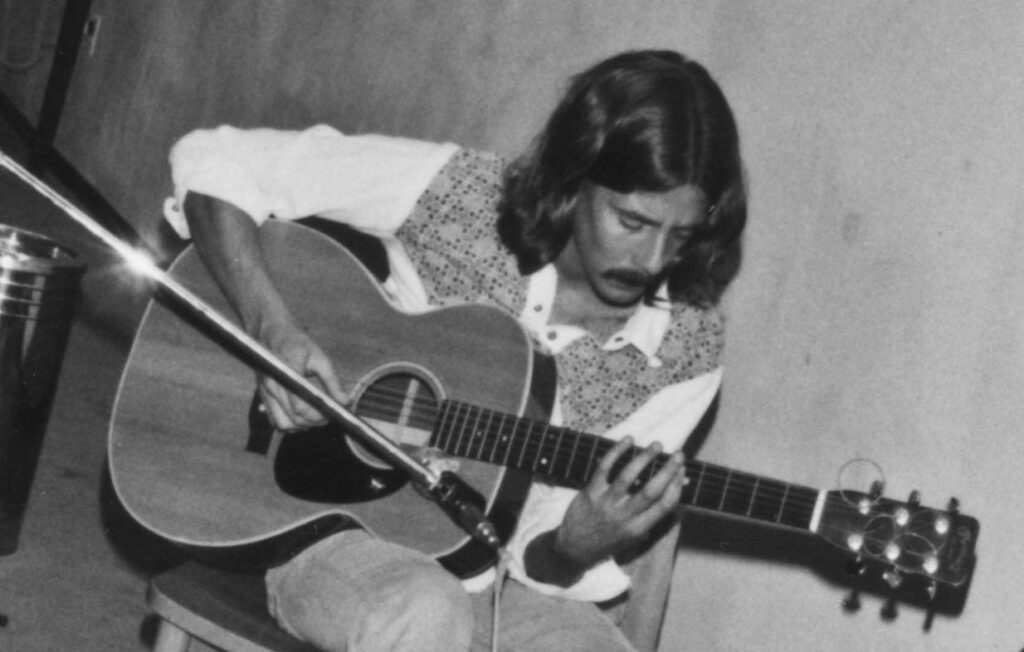
How did Entourage start?
Wall Matthews: Joe Clark was the director of the group and the founder of the group – it was his vision. He was working at Bennett College in Millbrook, New York. He was from Baltimore, just as I am, and was the musical director for Bob Brown, who was a singer songwriter from this area who got signed to Richie Havens’ Stormy Forest label. He did two albums for them, The Walls I Built Myself and Willoughby’s Lament. Rusty Clark was part of that group, as was Michael Smith. And I had been working with a singer songwriter named Biff Rose, who was a kind of a Randy Newman-slash-Martin Mull before either of those guys came around.
How did you enter the picture?
I was probably 19, maybe 20, and I went down to this club called the Classroom that was run by a guy who was a local singer songwriter. He said, “You should meet Joe Clark. He comes in here to rehearse and he’s got this thing called Entourage.” So I went down and met Joe, and we played a little bit. He played soprano sax and an electric keyboard back then called an RMI, which doesn’t exist anymore. We played a little bit and he was like, “Hey, we play at this club called the Blues in Baltimore. We start at one o’clock Saturday morning. Why don’t you come join us?”
I was like, “OK.” So that was the initial Entourage and it was a very mixed amalgam of a guitar player named Warren Smith, who also was part of Bob’s group, a conga player, a rock drummer, a rock bass player and a crazy woman who liked to sing and caterwaul and run her elbows all over the keys – to the dismay of many members of the band at the time. A street poet would sit in the audience and when he felt inspired, he would come up and free-form his poetry over the music.

Joe had this incredible background in bebop and classical music, and then you had me coming in as a kind of folk blues, Bert Jansch kind of player. That was the original group. It lasted about a year. Joe was commuting every week from Millbrook, New York down to Baltimore to do this gig. That was not sustainable after a period of time. So he went back to Millbrook and we all went our separate ways. And then he put together a trio with Smitty [Michael Smith] and Rusty and put out what became the first album on Folkways.
Joe came to Baltimore to work with me on a project and he said, “You got to come up to Millbrook and meet Rusty and Smitty,” which I did. And Rusty, with the two of us it was like one of those great moments when lightning strikes and you meet your soulmate as well as your — we were both only kids, but we were like brothers right away. We just completely connected – and Smitty, too of course.
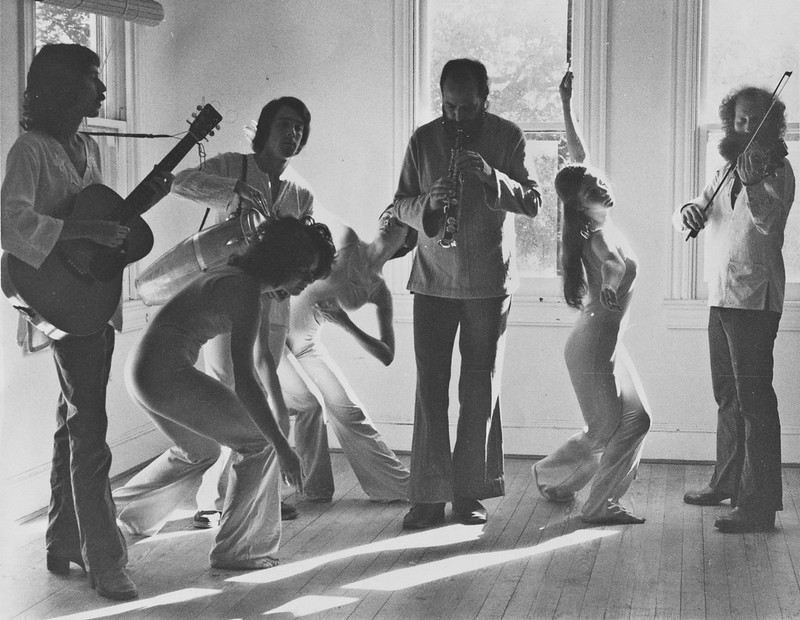
Your second album was called The Neptune Collection. How did that come about?
I was living in San Francisco and Joe was at Connecticut College working for the dance department there. They called me up and said, “You better get here because Richie [Havens] is getting ready to produce Entourage. If you want to be part of that, you should come.” I came east in ‘74. But Richie, as we found out, was a great enthusiast who didn’t always have a lot of follow through. I think Richie had a lot of herbaceous inspiration, let’s put it that way.
I ended up in New London living in this little tiny apartment in the building Joe was in. Rusty had been down in South America and he came back. We started working every day and this thing just started to happen. We started putting together the music we were all working on and it ended up becoming The Neptune Collection. And because Joe had this vision of adding dance to what we did — he was already working with modern dance — we eventually ended up being this ensemble of four musicians and three dancers. We did this show called The Neptune Collection, which was set structures with open-ended paths in between the structures where we could explore how we wanted to go from step to step every night.
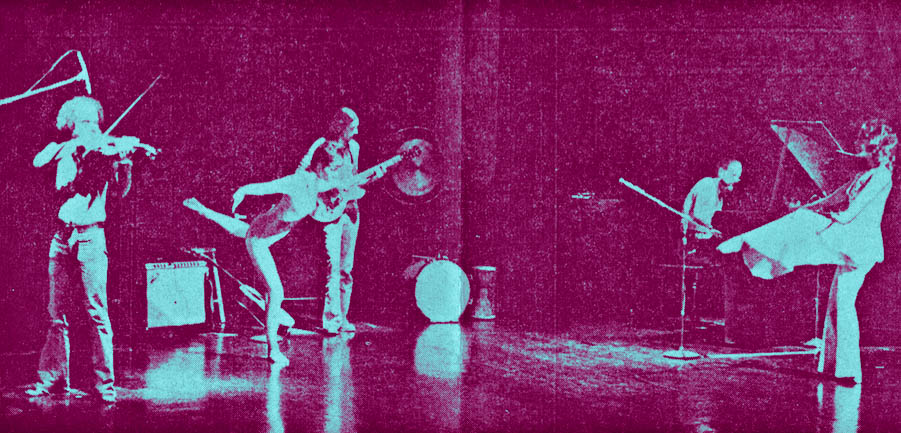
Did you tour?
We did do some touring. We played out in the Midwest. We played Charlotte’s Web. We played Good Karma in Madison, Wisconsin. We played in Milwaukee. We played in Baltimore a lot at a place called the Theater Project, which is still going on and a very vital center for experimental music and theater and art. The guy who ran it really loved Entourage and brought us in more times. We did that from ’74-’77, and then the economics kind of brought things to a halt. People had to survive and go their own way. We did a few sporadic performances after that and stayed in touch. Joe got pancreatic cancer and died in 1983 at age 46, I think. And then Rusty died in 1986, three years later.
God, I'm so sorry.
Yeah, it was devastating for me, especially because we were so close. I have a recording that I put out of our work called Air Over Water, which is on Spotify. It’s a really nice representation of the connection we had. Guitar and violin, or guitar and viola. That obviously was the end of Entourage. Then this weird thing happened where Four Tet sampled us.
Tell me about that.
It was a very bizarre circumstance, not atypical of the phenomena that happens around Entourage. Laurie Cameron, who was the director of the dance part of Entourage and one of the principal dancers, was teaching at Pomona College and a student brought in a boombox to play his music to show his piece. And all of a sudden she hears this piece “Neptune Rising” from The Neptune Collection. After she got up off the floor, she was like, “What are you doing with Entourage?” The kid was like, “It’s not Entourage. It’s Four Tet.” And she said, “No, this is Entourage.” She got in touch with me and said, “Who is this guy Four Tet and why is he using Neptune?” I said, “I don’t know what you’re talking about.”
I went to Domino’s website and there was a video right there. There we were in the middle of this piece. Scott Johnson handled the settlement for me. He settled many things. Do you remember the group Two Live Crew? They had sampled Chuck Brown, the go-go guy from D.C., and Scott had handled that case successfully. He said, “Give me all the particulars.” He got back to me and said, “This is the most egregious example of sampling I’ve ever seen in my life,” because in the middle of the piece, he pulled everything away and just let the Folkways recording play for about a minute.
Was there a moment when you realized that new generations of listeners were starting to connect with Entourage?
Yes, when Bob got these two albums released by Josh Rosenthal at Tompkins Square. He asked me if I would work with him on a couple of performances to support it, which I was glad to do. And Bob kept telling Josh, “You’ve got to check out Wall and you’ve got to check out Entourage.” He finally did and then he got into touch, saying, like “This stuff is incredible. I want to do something.” That’s how I ended up ultimately putting out what was like a three CD set of unreleased material from the archives. Josh is sort of like the new Moses Asch in some ways.
I agree. He's a great person.
He’s been so supportive of Entourage and of me. I mean, he put out five or six volumes of my solo guitar music a little over over a year ago.
Who did you consider like contemporaries or kindred spirits? What were you listening to and following, musically?
Very briefly, I started playing guitar when I was 14. Baltimore had a club called the Foghorn that brought in people like Tom Rush and Dave Van Ronk and Jim Kweskin and stuff like that. It was only a few blocks from my house, so I was very lucky that I could go up and sit in this tiny little club and watch these guys play. My dad was a collector of 78s, of like Blind Boy Fuller and Blind Willie McTell, and that stuff just grabbed me for some reason.
Then I heard an album called Lucky 13 by Bert Jansch, and I heard these little instrumental guitar pieces and I was like, OK, that’s what I want to do. That was a real big influence on me in the beginning with Bert Jansch and Pentangle and John Renbourn and the Incredible String Band, not so much for the singing as the guitar work. The sort of modal, looking-back, medieval feeling in a more contemporary setting really spoke to me. And it was the ‘60s, so everything with the Beatles and the Stones. Baltimore was a big, big soul music town and was number two for Motown sales after Detroit. So I was very lucky as a kid. My dad worked for a radio station and when I was 13 I went to see James Brown and the Motown Review a few years in a row.
Can you give me a little context for The Mermaid’s Purse release that just came out?
Yes, first I talked to Jonathan Williger [at Folkways]. I had been talking with them about stuff in general – would they be interested in this or that? And then I guess everybody kind of retired from Folkways and this new blood came in with Jonathan and Fred [Knittel]. Jonathan was very interested in what I had. I sent him a bunch of stuff to listen to and he gravitated to the live recording right away. So Fred sort of spearheaded the project and it was just a joy to work with him on this. I’m so happy to have this thing come out. And I’m totally indebted to Josh for what he did, and he brought a lot of awareness to Entourage.
